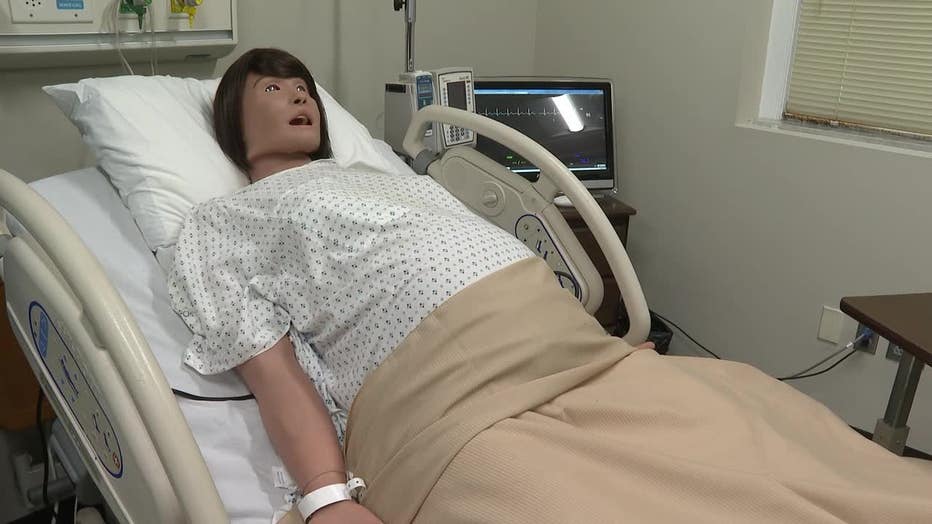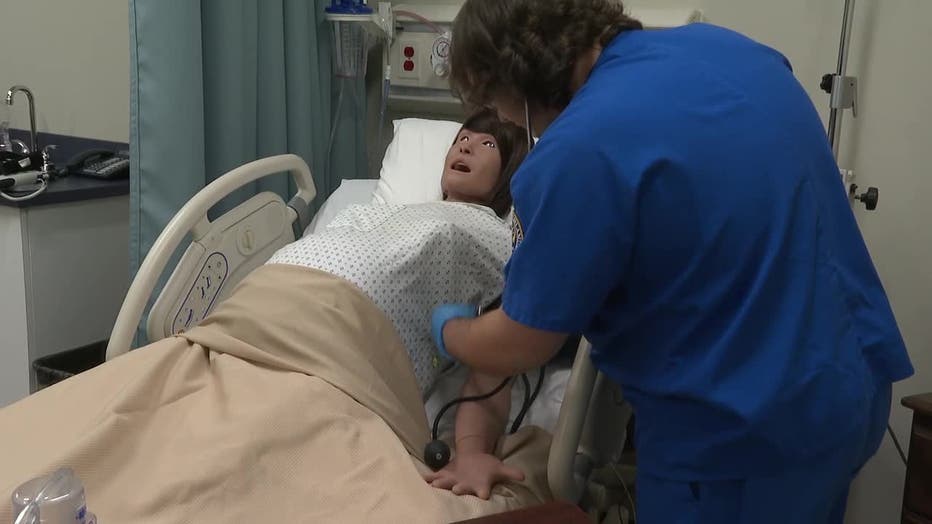Georgia nursing students get hands-on experience in simulation lab
Georgia nursing students get hands-on experience in simulation lab
Nursing students at Georgia Highlands College are getting a chance to treat patients before they step foot in the hospital thanks to some new high-tech mannequins.
ROME, Ga. - A grant is helping metro Atlanta nursing students get high-tech hands-on training before they touch real-life patients. Wellstar awarded the money to the nursing program at Georgia Highlands College specifically to help grow its simulation lab.
Nursing students at Georgia Highlands College are getting a chance to treat patients before they step foot in the hospital.
"The high-fidelity mannequins allow for our students to have instantaneous feedback," said Dr. Lisa Jellum, the dean of health science at Georgia Highlands College.
A partnership the college has with Wellstar for several years is helping grow the nursing program. A recent grant is being used toward the purchase of six new practice patients. They are high-tech mannequins including four adults, a child, and a newborn.

'Wellstar is well known for keeping technology at the cutting edge. So we felt this would be a good use for our funds for our students to be able to work with high-fidelity mannequins that can be used with hospital equipment," Jellum said.
"Getting these grants means we actually can better prepare the nurses of the future," Paula Stover, the director of nursing for Georgia Highlands College said.
Shea Walker is the assistant director of the nursing program. She says the simulation lab bridges the gap between the classroom and the clinic.
"You can actually insert an I.V. - an intravaneous catheter - you can give fluids, you can do all of the things that you would do in real time. We have a medication administration system, so they can distribute just like they would," Walker said.
Some mannequinns are also compatible with ventilators, which is also helping with training for the Medical College of Georgia.
Bryson Shiflett is in his second year of nursing school. He's had practice in the simulation lab. That includes training on these patients and also virtual reality.
"So anything you can do here, you can then do in the clinical environment during our clinical rotations, but there's no damage here. So it takes off that stress of actually hurting someone or harming a patient," Shiflett said.

"We also adjust our simulations to their interventions. So if they do adjust a drip or something where maybe they shouldn't have, we're going to make the mannequin respond appropriately, so they have that learning curve," Walker said.
The lab also improves access to fields in medicine that can be hard to get hands-on training. That has been a bigger challenge with COVID-19 precautions.
"Pediatrics is also a huge area that is hard to get into, and so we have a pediatric mannequin," Walker said.
It's efficient training and a confidence builder for nursing students.
"It was phenomenal what i could learn in such a little bit of time and then apply it to the real world," Shiflett said.
"If they're immersed in the same kind of equipment they'll be using in the work force, that makes our students much more equipped to stay long term and be really high functioning employees," Jellum said.
"We're growing the pipeline for folks, they grow up here, they go to school here, and they stay here, and they work here. And that is so important in this day of travel nursing," Stover said.
The school has two nursing programs. An associates degree nursing program and an R.N. to Bachelors in Nursing. They recently celebrated their 50th graduating class.

